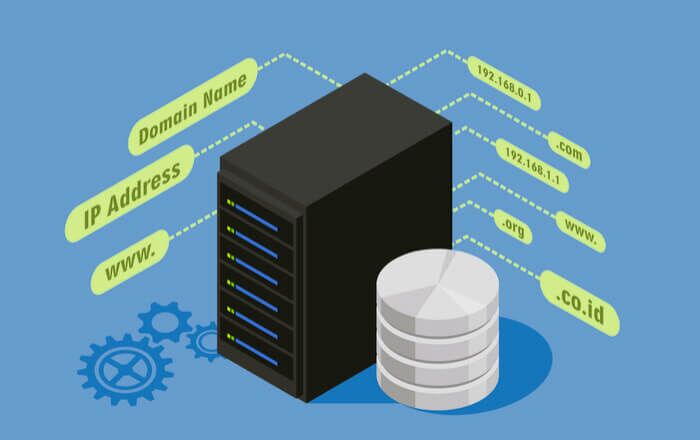When hoping to grow your business, an important step is developing your website. It serves as not only the host for your products or services but helps establish your reputation. Therefore, where physical shops have become obsolete for many, building your online image is crucial. And a key component to putting your website together is understanding its relationship with the internet’s infrastructure. This is where DNS enters as a key pillar between web browsing and finding your site.
So, although you may be confused by the technical side of the internet, learning about DNS is paramount to online visibility and interaction with your business. Here we uncover everything you need to know about DNS and what elements are involved to connect users to your services.
Defining DNS
DNS, which stands for Domain Name System, acts as a translator between readable human domains and the computer’s language. In simple terms, it controls your domain name’s website (eg, www.totalityservices.co.uk) and email settings. Also, it makes internet surfing easier as users don’t have to remember long IP addresses to access information.
For your business, DNS then directs users to your site, helping you become visible and convert them into customers. So, DNS is connected to your chosen domain name when you first set up your company’s website.
When visitors go to your domain name, its DNS settings control which company’s server it reaches out to. For example, if you use 123-REG’s DNS settings, visitors will reach the 123-REG servers when using your domain name. If you change those settings to use another company’s servers, visitors will reach them instead of you when visiting your domain.
Key DNS Elements
It’s critical that your IT support provider has full administrator access to your company’s DNS platform. Each one will have many different elements that control different aspects of your domain name, ensuring it can be found.
Here we explain the different elements and how they work:
Nameserver
A nameserver is a type of DNS server which directs your domain name to the company that controls its DNS settings. Usually, this will be the company where you registered the domain name. However, if your website is hosted by another company, sometimes they provide nameservers you’ll need to point to instead.
Zone File
A zone file is a plain text file which describes a “zone” of DNS. Simply, these are the files that store all your domain’s DNS records and settings.
Your domain name’s zone file is stored on the company’s nameserver.
A Record
The “A” in A Records refers to address. Therefore, it points your domain name to the IP address of the hosting server. An example IP address would be 123.4.77.4.
Every domain name has a primary A Record called “@,” which helps identify it. This controls what your domain name does when some visits it directly.
You can also use A Records to point subdomains to a server’s IP address. Subdomains are prefixes used to separate different parts of your website. For example, the shop section in your site may look like shop.business.com.
CNAME
CNAMEs, otherwise known as Canonical Name records, are another type of DNS record related to subdomains. These records help point your subdomains to your root domain name. For example, this allows the subdomain shop.business.com to relate back to the primary website called business.com.
Most domain names have many CNAMEs, however, unlike A Records, CNAMEs cannot use IP addresses.
MX Records
MX Records refers to ‘mail exchange’. These records’ main function is to point your domain name’s email to its email provider. Overall, they assist with delivering messages to the correct domain’s inbox.
These records are crucial as they manage mail flow and can ensure emails don’t land in the recipient’s spam.
Seeking an IT Support provider?
totality services was founded in 2008 and provides London’s small & medium businesses with an end-to-end IT service, from purchasing and installing hardware to Mac & Windows support, cloud solutions and data backup. We support our clients using proven, high quality systems and security practices that blue-chip companies take for granted.
We consistently achieve excellent client satisfaction thanks to a process driven approach, concise documentation and our team of friendly and highly trained London based engineers. So, if you have any queries about DNS management or would like to learn more about our services, please reach out to our friendly team today!
